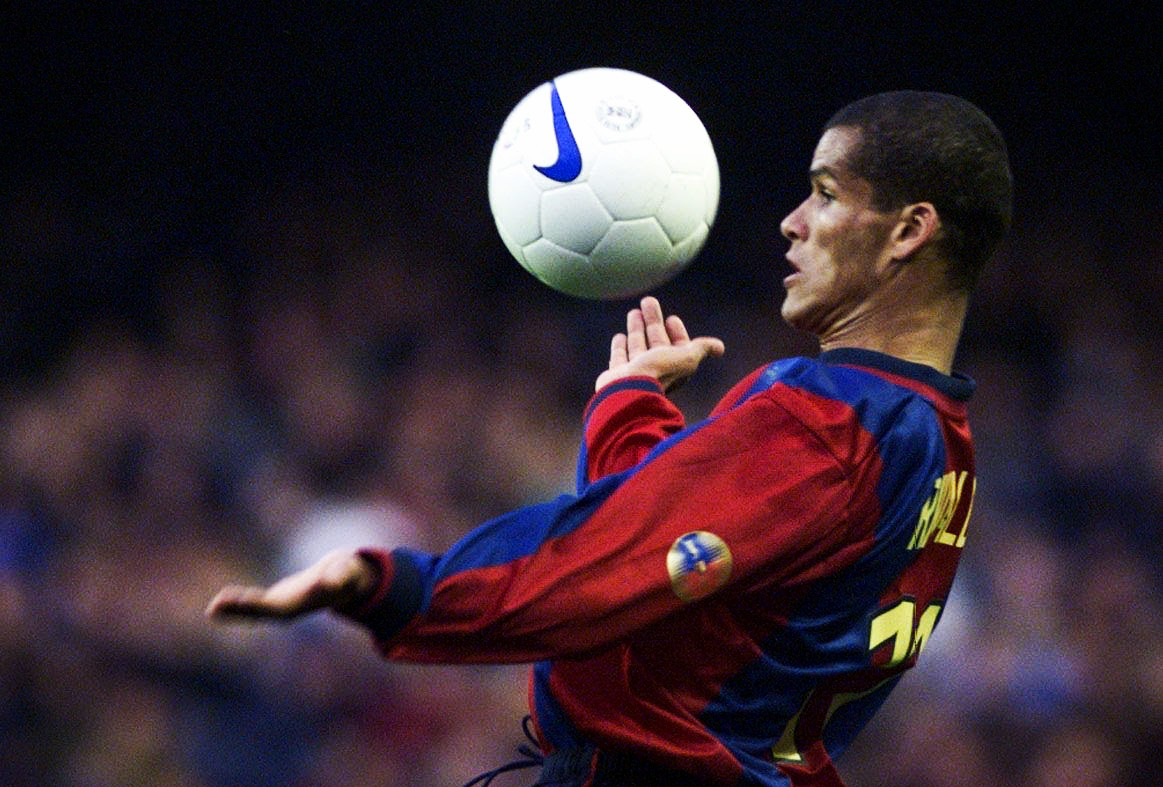
As another season of unpredictable Premier League football draws ever closer, Crystal Palace fans would be forgiven for awaiting the impending campaign with a restless anticipation; with smiles on their faces and a sense of optimism permeating their preliminary predictions.
The 2018/19 campaign will be Palace’s sixth consecutive season in the Premier League since their last promotion from the Championship in the summer of 2013, and while the prospect of the Eagles finishing anywhere higher than, say, eighth, seems wildly unlikely – even in a world where Leicester City were crowned champions of England not four seasons ago – Palace will still be glad to be there, mixing it with the big boys of the top tier and continuing to nurture a squad that proudly gazes upwards rather than down.
After all, it was only seven and a half years ago that they found themselves perilously close to the Championship’s basement, docked 10 points for having entered administration and, all the while auctioning off their young talent in the hopes of raising enough capital to prolong their existence, staring the threat of liquidation in the face.
Still, it wasn’t all doom and gloom in those days. It was as a consequence of this seemingly impending implosion the team’s boss, Neil Warnock, was forced into one particular personnel choice that would prove every bit as memorable as it was unorthodox.
Ahead of his side’s FA Cup fourth-round replay at home to Premier League opponents Wolves in February 2010, Warnock elected to name a 30-year-old full-back in his starting line-up … at centre-forward. It was on that night that Danny Butterfield became the proud owner of the least likely hat-trick in football history.
Come the day of the game, it had been over two years since Butterfield had found the net for Palace; his last goal coming as a belated gift on Boxing Day in 2008. In a career which had, prior to the season’s start, averaged a goal every 40 games, even when rounded down in the most generous fashion, there seemed to be no logic to Warnock’s decision to start Butterfield up front.

Read | Wycombe Wanderers, Roy Essandoh and the Ceefax miracle
But a scarcity of options demanded creativity from the gaffer. The administration-enforced deadline day sale of young forward Victor Moses had robbed the Palace manager of one obvious attacking option and, when injuries scuppered his alternative plans, Warnock was encouraged to think outside of the box. So he put a full-back in it.
Not a complete stranger to the wing, given his propensity to charge up and down it while playing as a right-back, it didn’t seem to Warnock so absurd an idea to start Butterfield a little further forward. Besides, in recent training sessions, he’d shown he had a decent shot on him too. “I think the only reason I was up there was because I played as a centre-forward in five-a-side two or three days before and scored goals,” Butterfield recalled in a later interview with Sky Sports, “Neil was like, ‘why not?’”
In the preceding days, those at the helm of the Crystal Palace’s finances had been eager to sanction the sale of young right-back Nathaniel Clyne, such was their desperate need to raise funds, but Clyne had refused the proposed sale to, of all teams, Wolves. Should the transfer have gone through, and Clyne had been occupying the right-back position in the Wolves side, as opposed to Palace’s, there’s no doubt it would have been Butterfield’s duty for the day. Instead, by hook or by crook, he found himself up front.
Into the second half and the tie was still locked in a stalemate. As manager of the team in the higher tier, it was the Wolves boss who blinked first. Frustrated by his team’s blunt offence, as the hour mark approached, Mick McCarthy rang the changes and called for a double substitution. Sylvan Ebanks-Blake and Chris Iwelumo entered the fray, replacing their lesser experienced counterparts. Much to his dismay, it was Crystal Palace who appeared galvanised by the switch.
On 62 minutes, Clyne nipped between two Wolves players to nudge the ball upfield towards Butterfield. After progressing down the wing, the makeshift forward attempted a cross which was swiftly blocked by Richard Stearman. Though the ball ricocheted off of Butterfield last, before crossing the white line, the linesman signalled for a Crystal Palace corner. Butterfield made his way to the penalty area and hovered with intent.
Darren Ambrose pinged a driven cross towards the penalty spot, where it was met at pace by a powerful header from defender Matt Lawrence. Wolves goalkeeper Wayne Hennessey reacted smartly, raising a strong paw to deny the effort, but he could do nothing to prevent Butterfield from nodding home the rebound after jostling free from Michael Mancienne’s clutches in the six-yard box.

Read | The great Rivaldo hat-trick of 2001
Butterfield impulsively raced off towards the corner of the field, a single arm aloft. His fan-facing roar evidenced his elation but his raised eyebrows communicated disbelief. The surprises had only just begun.
Three minutes later, a long punt upfield found the bandaged head of Alan Lee, who held off his marker and flicked on to Ambrose. With his first touch, Ambrose fed Butterfield who continued his run into the box, marginally resisted a last-ditch tackle from Stearman, and prodded a right-footed shot beneath the despairing dive of Hennessey. Two-nil to Palace and two goals for Butterfield.
His celebration this time looked almost identical to his first. Butterfield clearly knew better than to waste his time practising celebrations; he’d rarely be afforded the opportunity to showcase them. Until tonight.
Another three minutes elapsed before suddenly he was in again. “The hat-trick certainly weren’t in my mind,” Butterfield later recalled, “because I was thinking ‘how have I managed to get one, let alone two!’”
In the Sky Sports studio, watching the game live for the night’s Soccer Special programme, Paul Merson couldn’t contain himself. “Amazing,” presenter Ed Chamberlin began to calmly summarise, “two in three minutes, as Paul Merson says, has put Crystal Palace on the edge of a tie at home to Aston Vi—” but an incredulous Paul Merson scream cut him off. “A hat-trick! It’s a hat-trick!” Merson called out. “He can’t have done! He can’t!” questioned Chamberlin. “He has!” Merson reported between laughs, “It’s 3-0!”
Once more, the Palace attack had hinged upon a clever flick upfield from the head of Lee. Route one at its finest, this time foregoing the added step of an Ambrose assist, Lee’s header dissected the retreating Wolves defence. Butterfield snuck between them, profiting from their lethargy, and bounced a neat left-footed finish between Hennessey’s splayed legs and into the gaping net.

Read | The five heroes who scored three free-kicks in a single game
“Shaun Derry and Clint Hill were even sort of laughing,” Butterfield remembers, “looking down the pitch, still laughing, starting at me, thinking ‘what is going on here?’” Karl Henry would grab a consolation for Wolves in the contest’s dying embers, but the game’s fate had long since been decided by the most unlikely of judges.
With three goals in as little as six minutes and 48 seconds, not only had Butterfield’s first and only professional hat-trick broken his club’s record for the fastest ever three-goal haul, but the game’s hero could go one further still and claim his to be a perfect hat-trick. Scoring one apiece with his head, his left foot and his right, Butterfield’s hat-trick was the collector’s item to complete all collections.
Sadly for Palace fans, Butterfield was never able to repeat his heroics. In their very next fixture, Warnock handed his impromptu poacher another runout at centre-forward but nothing like the same kind of performance followed and so Butterfield returned to the home comforts of right-back.
Palace played host to another Premier League side in the fifth round, this time in the form of Aston Villa, and were able to hold them to a 2-2 draw at Selhurst Park. But the Eagles would be beaten 3-1 in the ensuing replay. With that, Butterfield’s goals were resigned to history.
Crystal Palace would eventually find the stability they so desperately craved following the sale of the club to a fan-led a consortium in 2010. After staving off relegation to the country’s third tier, Palace progressed, slowly but surely. Today they find themselves as Premier League regulars, rarely requiring a right-back of any sort to deputise up top.
Danny Butterfield, meanwhile, would go on to play for Southampton, Bolton, Carlisle and Exeter before hanging his boots up in 2016. Needless to say, in the subsequent years, neither he nor his old south London club ever witnessed anything quite like that night in the FA Cup. The night, Danny Butterfield became the proud owner of the least likely hat-trick in football history.
By Will Sharp @shillwarp
